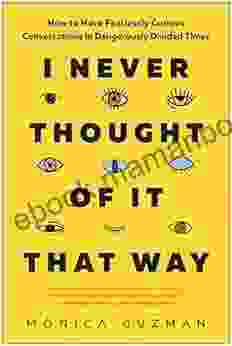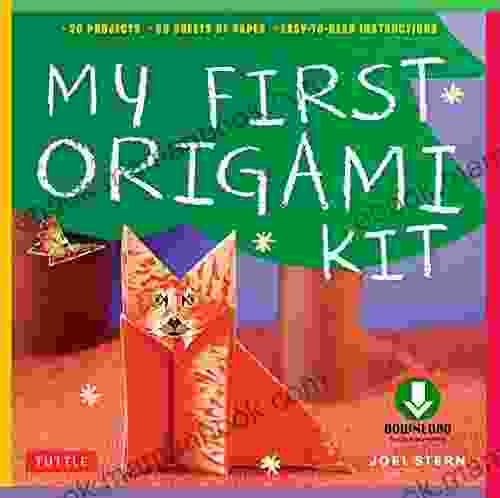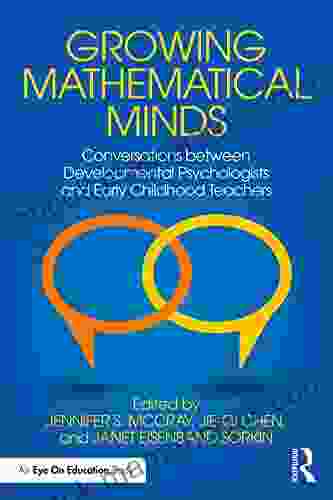Conversations Between Developmental Psychologists and Early Childhood Teachers: Fostering Collaboration and Child Development

Developmental psychologists and early childhood teachers share a common goal: to promote the healthy development and well-being of young children. However, their perspectives and approaches can sometimes be different, leading to a gap in understanding and collaboration. This article aims to bridge that gap by exploring the importance of conversations between developmental psychologists and early childhood teachers, highlighting their complementary roles, and providing strategies to facilitate effective communication.
The Unique Perspectives of Developmental Psychologists
Developmental psychologists study the growth and development of individuals from infancy to adolescence. Their research provides valuable insights into the cognitive, emotional, social, and physical changes that occur during this critical period. Psychologists use a variety of methods, such as observation, interviews, and experiments, to gain a comprehensive understanding of child development.
4.2 out of 5
| Language | : | English |
| File size | : | 3554 KB |
| Text-to-Speech | : | Enabled |
| Screen Reader | : | Supported |
| Enhanced typesetting | : | Enabled |
| Word Wise | : | Enabled |
| Print length | : | 232 pages |
The Practical Applications of Early Childhood Education
Early childhood teachers work directly with young children in educational settings, applying their knowledge and skills to nurture their development. They create age-appropriate activities, foster social interactions, and encourage learning in various domains. Teachers draw upon their observations, experience, and pedagogical knowledge to support each child's individual needs.
The Importance of Collaboration
Conversations between developmental psychologists and early childhood teachers foster collaboration and mutual understanding, ultimately benefiting the children they both serve. Psychologists can provide teachers with insights into the developmental milestones and challenges that children may face at different ages. Similarly, teachers can share their real-world observations and experiences, helping psychologists refine their theories and research questions.
Strategies for Effective Communication
Facilitating effective communication between these two groups is crucial. Here are some strategies:
- Establish a common ground: Find shared interests and goals that align with both perspectives.
- Use clear and accessible language: Avoid jargon or technical terms that may hinder understanding.
- Share research and practice: Present research findings and practical examples to illustrate theoretical concepts and their implications.
- Listen actively: Value each other's contributions, seeking to understand different points of view.
- Foster a culture of respect: Acknowledge the unique expertise and experiences that both groups bring to the table.
Specific Areas for Collaboration
Collaboration between developmental psychologists and early childhood teachers can be particularly beneficial in the following areas:
- Child assessment: Psychologists can provide teachers with assessment tools and strategies to identify developmental strengths and challenges. Teachers can then use this information to tailor their interventions and support each child's needs.
- Curriculum development: Psychologists can advise on age-appropriate activities and learning experiences that promote optimal development. Teachers can incorporate these insights into their curricula, enhancing the quality of early childhood education.
- Intervention and support: Psychologists can assist teachers in developing effective interventions for children facing developmental difficulties. Teachers can implement these interventions and monitor their progress, providing valuable feedback to psychologists.
Conversations between developmental psychologists and early childhood teachers are essential for fostering collaboration and promoting child development. By bridging the gap between theory and practice, these conversations ensure that the latest research findings are translated into effective educational practices that benefit young children. Through mutual understanding, open communication, and shared expertise, these two groups can work together to create a nurturing and enriching environment for all children.
4.2 out of 5
| Language | : | English |
| File size | : | 3554 KB |
| Text-to-Speech | : | Enabled |
| Screen Reader | : | Supported |
| Enhanced typesetting | : | Enabled |
| Word Wise | : | Enabled |
| Print length | : | 232 pages |
Do you want to contribute by writing guest posts on this blog?
Please contact us and send us a resume of previous articles that you have written.
 Top Book
Top Book Novel
Novel Fiction
Fiction Nonfiction
Nonfiction Literature
Literature Paperback
Paperback Hardcover
Hardcover E-book
E-book Audiobook
Audiobook Bestseller
Bestseller Classic
Classic Mystery
Mystery Thriller
Thriller Romance
Romance Fantasy
Fantasy Science Fiction
Science Fiction Biography
Biography Memoir
Memoir Autobiography
Autobiography Poetry
Poetry Drama
Drama Historical Fiction
Historical Fiction Self-help
Self-help Young Adult
Young Adult Childrens Books
Childrens Books Graphic Novel
Graphic Novel Anthology
Anthology Series
Series Encyclopedia
Encyclopedia Reference
Reference Guidebook
Guidebook Textbook
Textbook Workbook
Workbook Journal
Journal Diary
Diary Manuscript
Manuscript Folio
Folio Pulp Fiction
Pulp Fiction Short Stories
Short Stories Fairy Tales
Fairy Tales Fables
Fables Mythology
Mythology Philosophy
Philosophy Religion
Religion Spirituality
Spirituality Essays
Essays Critique
Critique Commentary
Commentary Glossary
Glossary Bibliography
Bibliography Index
Index Table of Contents
Table of Contents Preface
Preface Introduction
Introduction Foreword
Foreword Afterword
Afterword Appendices
Appendices Annotations
Annotations Footnotes
Footnotes Epilogue
Epilogue Prologue
Prologue Johanna Bell
Johanna Bell Kathy Terrill
Kathy Terrill Piper Davenport
Piper Davenport Barbara Sher
Barbara Sher Marc Dugain
Marc Dugain Jason Cobley
Jason Cobley Benjamin Landry
Benjamin Landry Marko Kloos
Marko Kloos Michael Shaw
Michael Shaw Pierre Reverdy
Pierre Reverdy Marcus Jackson
Marcus Jackson Frank Bettger
Frank Bettger J T Williams
J T Williams David Brooks
David Brooks Chelsea Thomas
Chelsea Thomas Morgan A Wider
Morgan A Wider William Dolby
William Dolby Victoria Michaels
Victoria Michaels Lois Ellen Frank
Lois Ellen Frank Marie James
Marie James
Light bulbAdvertise smarter! Our strategic ad space ensures maximum exposure. Reserve your spot today!

 Jaylen MitchellUnveiling the Enchanting World of Zitkala-Sa: Legends, Customs, and the...
Jaylen MitchellUnveiling the Enchanting World of Zitkala-Sa: Legends, Customs, and the... Nathaniel HawthorneFollow ·14k
Nathaniel HawthorneFollow ·14k Roland HayesFollow ·12.4k
Roland HayesFollow ·12.4k Arthur C. ClarkeFollow ·12.8k
Arthur C. ClarkeFollow ·12.8k Aubrey BlairFollow ·14.7k
Aubrey BlairFollow ·14.7k Holden BellFollow ·5.3k
Holden BellFollow ·5.3k Eric HayesFollow ·17.2k
Eric HayesFollow ·17.2k Levi PowellFollow ·7.1k
Levi PowellFollow ·7.1k Robert ReedFollow ·15.8k
Robert ReedFollow ·15.8k

 Ross Nelson
Ross NelsonHow to Have Fearlessly Curious Conversations in...
In a world increasingly polarized by...

 Isaac Mitchell
Isaac MitchellFew Things to Keep in Mind for a Successful Introduction...
Writing an series...

 Dallas Turner
Dallas TurnerThe Ultimate Easy Key for Beginners: A Comprehensive...
Welcome to the world of...

 Mitch Foster
Mitch FosterMy First Origami Kit: Ebook Downloadable Material...
Origami, the...

 Tony Carter
Tony CarterQuick, Easy, and Healthy Recipes to Treat Gut Infections...
Gut infections are a common problem that can...

 Adrian Ward
Adrian WardThe Mechanism Behind Italian Poetry In English: Poesia...
The world of...
4.2 out of 5
| Language | : | English |
| File size | : | 3554 KB |
| Text-to-Speech | : | Enabled |
| Screen Reader | : | Supported |
| Enhanced typesetting | : | Enabled |
| Word Wise | : | Enabled |
| Print length | : | 232 pages |










